The benefits of reading go beyond it being a great escape. The act of 'losing yourself in a book' has a variety of physical and mental health perks.

Do you know that wonderful feeling of 'getting lost' in a book?
We often classify fiction reading as a guilty pleasure. However, the power of reading goes beyond entertainment. There is ongoing scientific evidence that reading is good for both your mind and body.
Have you been looking at your to-do list and feeling guilty about taking a break to read?
Scientific research provides many reasons to make reading part of your day-to-day habit. Check out the health benefits of reading below.
5 Benefits of Reading a Good Novel Backed By Science
Is reading good for you? Yes. Yes. YES.
Study after study shows why reading should be a priority and part of a healthy daily routine. Drop any guilt you have about taking an unbusy moment for yourself to read fiction. Settling down and 'getting lost in a book' is good for your health. Below are five benefits of reading, according to science.
1. Reading helps reduce stress within minutes
Your brain can’t effectively problem-solve 24/7. We all need periods of rest and disengagement to allow our brains to get back to peak functionality.
Research from the MindLab at the University of Sussex shows that reading is the most effective way to overcome stress, beating out methods like listening to music, or even taking a walk.
Participants’ heart rates slowed, and tension in their muscles eased up to 68% within six minutes of silent reading. Psychologists believe the mind’s concentration while reading creates a distraction that eases the body’s stress.
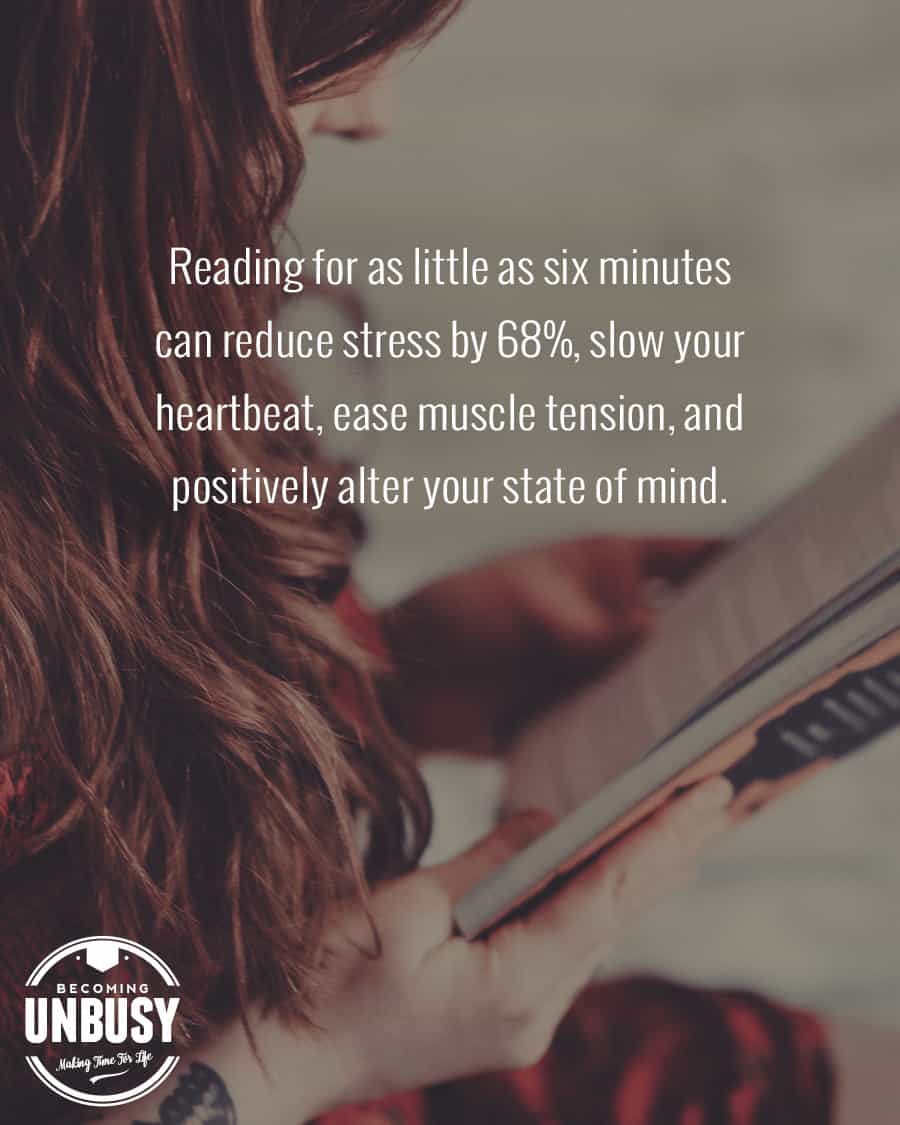
Grab a book and de-stress.
2. Reading keeps our minds sharp as we age
Skip scrolling through Facebook, and pick up a book.
Neuroscientists show reading stimulates neural networks in the brain that improve our social cognition and conceptual processing of abstract content, making it good for your cognitive skills too.
“Reading, by engaging the brain, may keep the brain active enough to prevent cognitive decline that is associated with a variety of diseases associated with earlier mortality,” explains Avni Bavishi, an MD candidate at the Feinberg School of Medicine at Northwestern University.
There's also evidence that readers experience slower memory decline later in life when compared to non-readers. In particular, readers have a thirty-two percent lower rate of mental decline compared to their peers.
3. Regular fiction readers sleep better at night
Creating a consistent night-time ritual is a great way to build healthy sleep patterns.
The best way to get a good night's rest is to have the last activity of your day completely disengage you from the tasks on your to-do list.
Tim Ferriss, the author of The 4-Hour Workweek, strongly advocates the power of reading fiction-only at bedtime:
“Do not read non-fiction prior to bed, which encourages projection into the future and preoccupation/planning. Read fiction that engages the imagination and demands present-state attention."
I believe J.K. Rowlings' opinion on bedtime stories is pertinent regardless of age. Consider fiction a healthy invitation to dream.
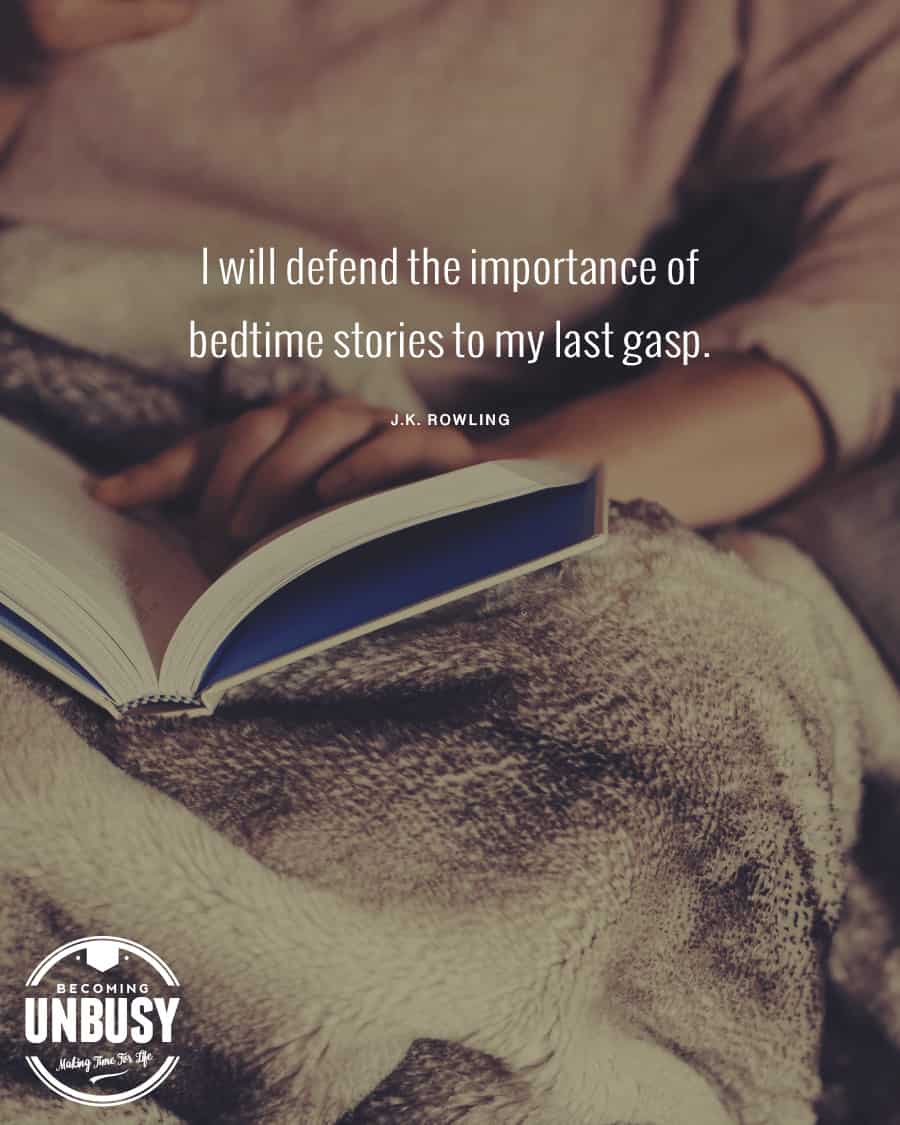
4. Reading provides a sense of belonging that we inherently crave
Author C.S. Lewis simply states...
We read to know we are not alone.
Melanie Green, Ph.D., associate professor in the department of communication at University at Buffalo, reiterates, “Stories allow us to feel connected with others and part of something bigger than ourselves.”
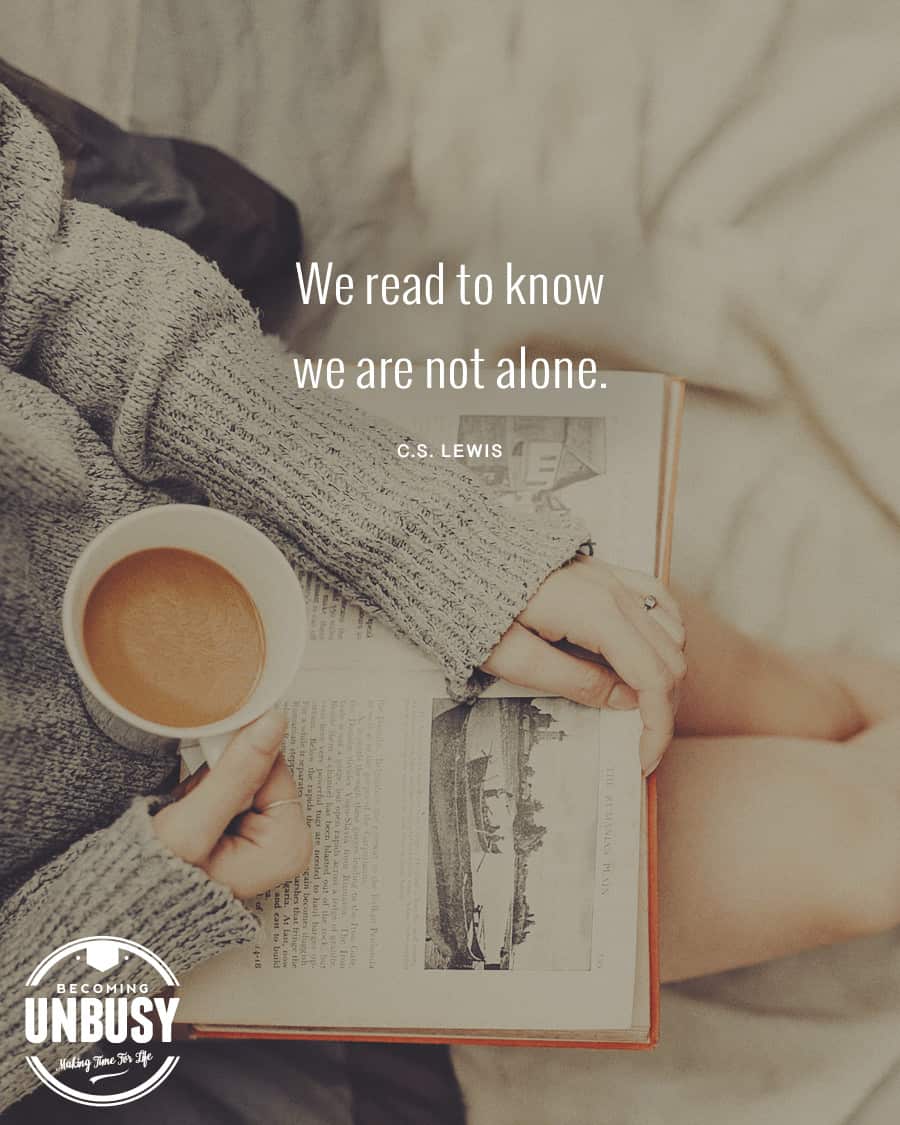
Books also open the door for everyday social interaction. Whether it be participating in a book club at your local library, chatting about novels online in a virtual book club, or hosting a book swap with friends — reading opens the door to opportunities to connect with people.
"We are hardwired to connect with others," explains research professor at the University of Houston, Brené Brown, "It gives purpose and meaning to our lives."
5. Stories help us think, feel, and re-imagine the type of person we want to be
When you read a good novel, you start to see the world from a new perspective, explains Keith Oatley, Ph.D., emeritus professor in the department of applied psychology and human development at the University of Toronto.
“You give up some of your own habits and thoughts, and you take on your own idea of being a different person in circumstances that you might otherwise never had been in.”
For example, the group discussion around the novel The Overdue Life of Amy Byler in the digital book club I am part of, Peanut Blossom's Book Club For Recovering Readers, opened many moms' eyes to ideas of self-care that go against societal norms.
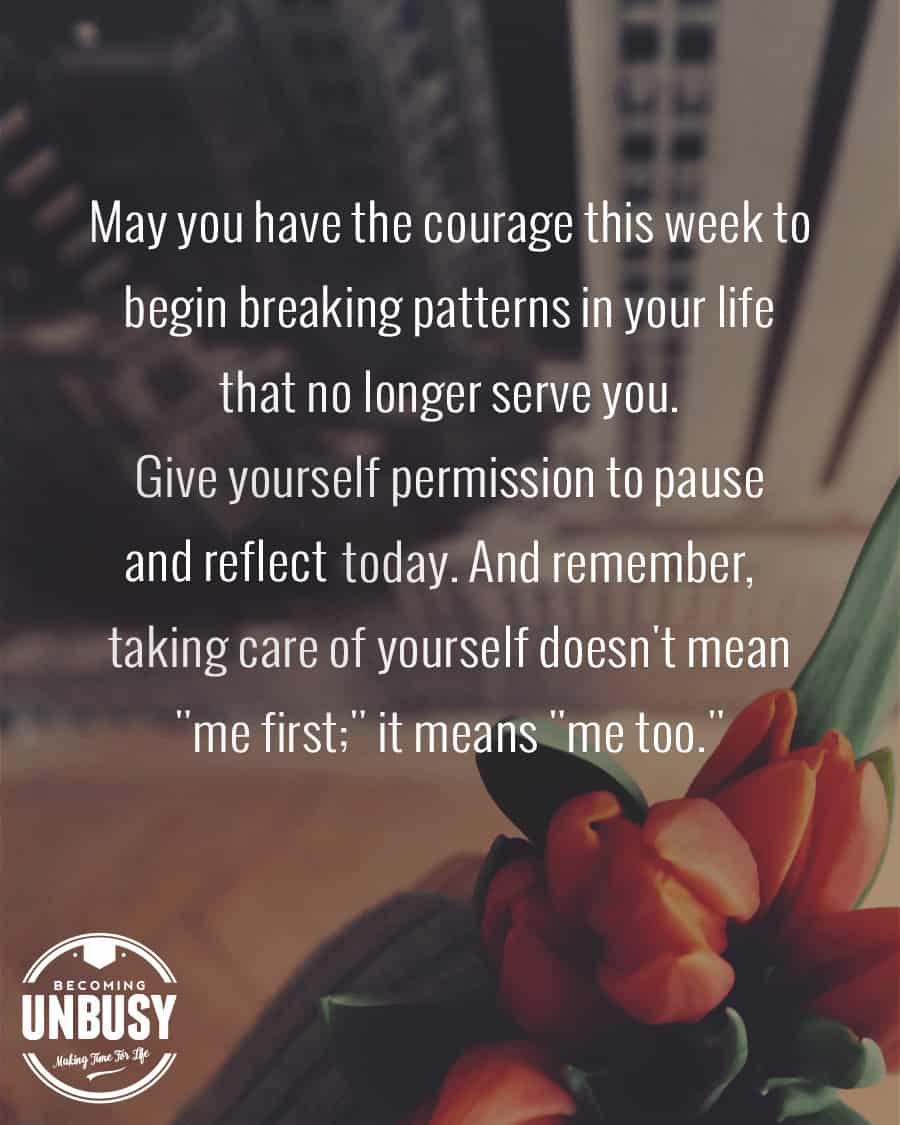
In the mid-nineties, neurologists discovered "mirror neurons," which fire in our brains when we perform actions and when we see an action performed by others.
A study published by the Annual Review of Psychology based on analysis of MRI brain scans showed that when people read about an experience, they display stimulation within the same neurological regions as when they go through that experience themselves.
In other words, through reading this lighthearted novel, women were able to experience, feel, and consider what that might look like or feel like in their own lives. The book was a wonderful reminder to take time to do what makes your soul happy.

YOU MIGHT ALSO LIKE: 18 Easy Things You Can Do Right Now to Make Yourself Happier
BONUS: Fiction can help us break free from the "supposed to" of societal norms
There is sometimes a stigma around fiction. It is sometimes considered mere entertainment and, therefore, a waste of time, while nonfiction books hold more value in certain circles.
Ellen Hopkins explains the importance of both fiction and non-fiction when she writes...
Nonfiction speaks to the head. Fiction speaks to the heart.
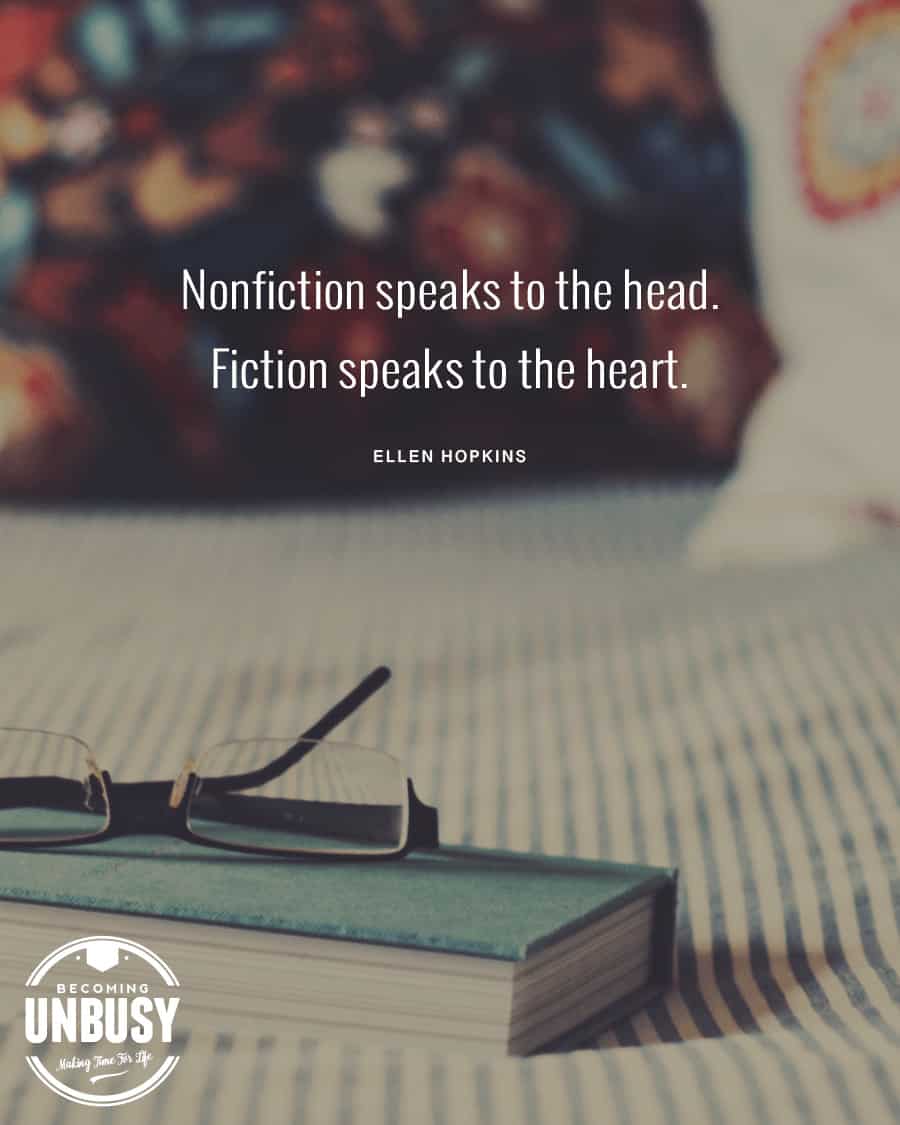
In the study How Reading Transforms the Self, participants read one of two different 'versions' of the same story — an original fiction piece or the retelling of the same story in a non-fiction writing style.
Participants who read the fiction version of the story changed in their personality traits, and they also reported feeling higher levels of emotions.
Fiction, he notes, is particularly useful because "novels, stories, and dramas can help us understand the complexities of life.”
Dr. Oatley recommends thinking about these findings in terms of personal growth; for example, living life in our own unique way, rather than following what society tells us to be or do.
. . .
One last note on why reading is important...
Breaks are necessary for our well being; it is that simple.
Don't feel guilty for putting something on pause temporarily while you find balance.
Take time to read a book, and remember, your health and family always come first.
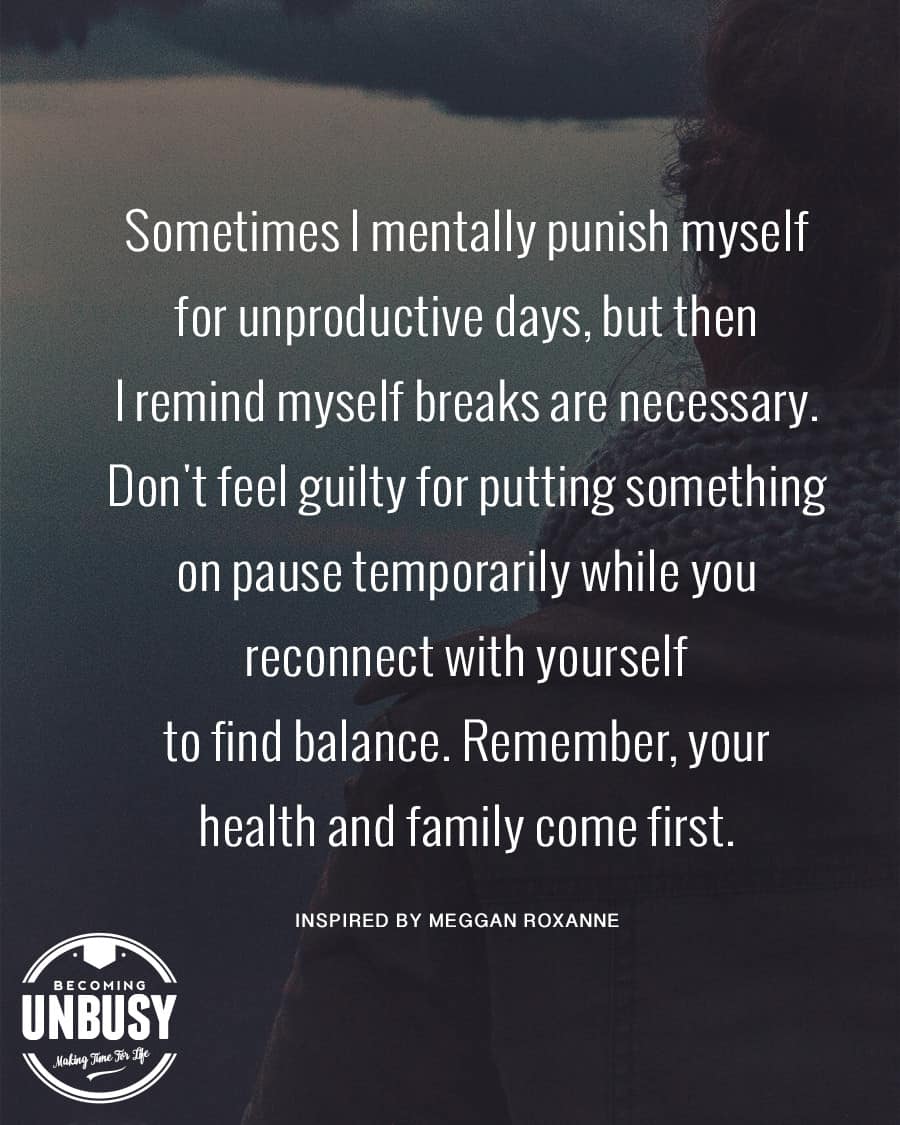
That being said...
Tomorrow is National Stay in Bed Reading Day.
I just made it up. Tell the others.
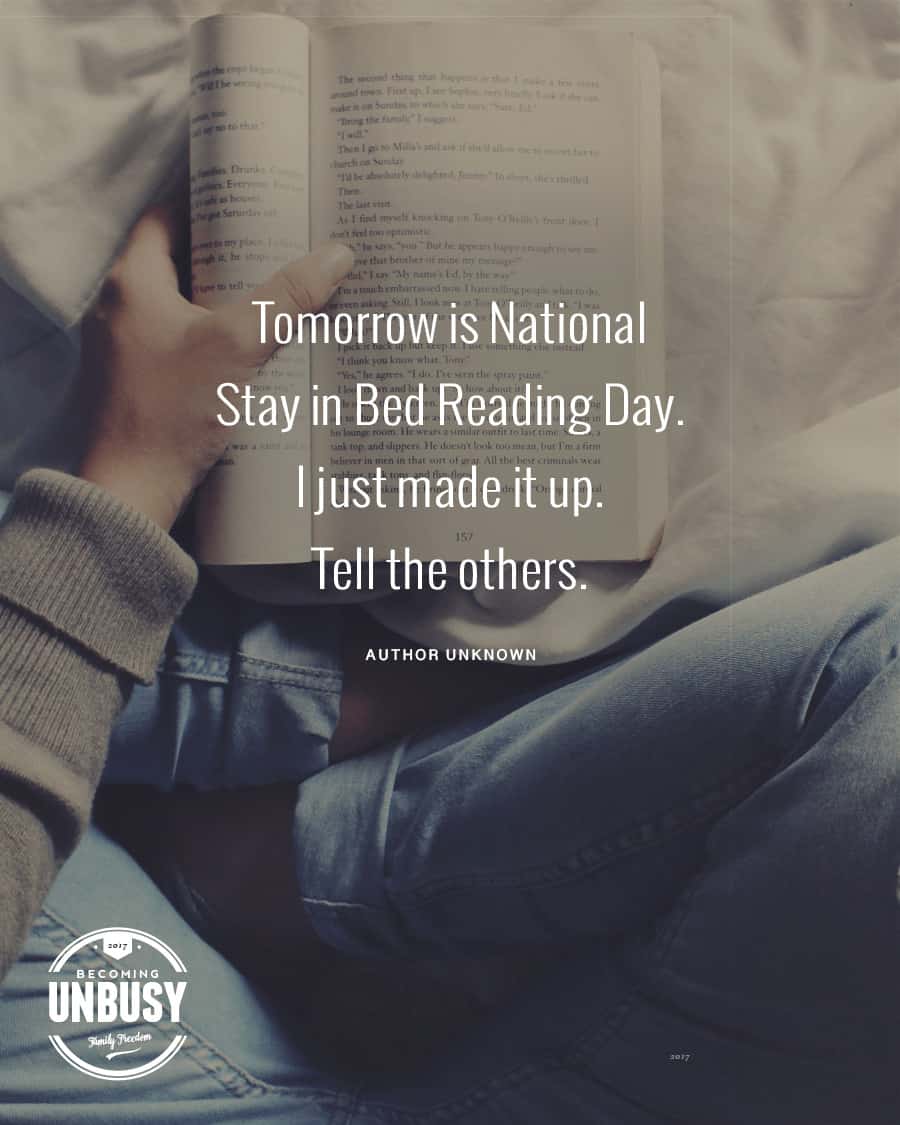
Love this post on the benefits of reading? Sharing it would make our week. 💛
It would make our week if you took a second to share this post on the benefits of reading your favorite social media spot. (That's how we know we're on the right track and should continue writing more posts like this!)
